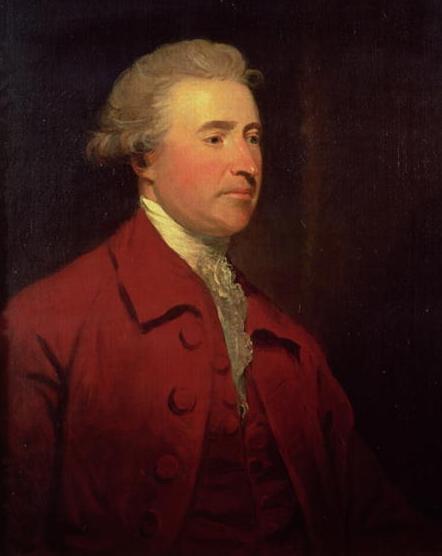Edmund Burke słynne cytaty
Źródło: E. Burke, „Refleksje i dane o nieurodzaju”, [w:] Idem, O duchu i naturze rewolucji…, s. 237
„Dla triumfu zła potrzeba tylko, żeby dobrzy ludzie nic nie robili.”
przypisywane; prawdopodobnie jest to parafraza innych słów Burke'a.
Inne wersje:
Aby zło zatriumfowało, wystarczy, by dobry człowiek niczego nie robił.
Jedna myśl o tym żeby zatryumfować nad złem, jest dla dobrego człowieka niczym.
Jedyną rzeczą potrzebną złu do zwycięstwa jest bierność dobrych ludzi.
Zło zwycięża, gdy dobrzy ludzie nic nie robią.
Źródło: Jarosław Gronert, Astrologia od początku, Pabianice 2007, s. 30.
Rozważania o rewolucji we Francji
Edmund Burke cytaty
„Żaden Europejczyk nie może stać się całkowitym uchodźcą w żadnej części Europy.”
Źródło: „Pressje”, wyd. 6–7, 2006, s. 155.
„Wolność bez mądrości i cnoty? To jest zło największe z możliwych.”
Rozważania o rewolucji we Francji
Źródło: „Zdanie”, wydania 70–81, Krakowskie Wydawnictwo Prasowe RSW Prasa – Książka – Ruch, Kraków 1988.
Źródło: Dociekania filozoficzne o pochodzeniu naszych idei wzniosłości i piękna, Warszawa 1968, s. 14, tłum. P. Graff.
Źródło: Acta philologica, wyd. 6, Wydawnictwa Uniwersytetu Warszawskiego, Warszawa 1974, s. 209.
O książce Teoria uczuć moralnych Adama Smitha
Źródło: E. Burke, Correspondence, cyt. za: R. Rydz, Edmund Burke na ścieżkach wolności, op. cit. s. 186.
Źródło: Edmund Burke, Appeal from the New to the Old Whigs, 1791.
Źródło: Louis L. Bredvold, Ralph G. Ross, Ann Arbor, The Philosophy of Edmund Burke, 1960, s. 60.
O relacjach między władzą państwa a wolnością obywateli.
Rozważania o rewolucji we Francji
Rozważania o rewolucji we Francji
Rozważania o rewolucji we Francji
Rozważania o rewolucji we Francji
Rozważania o rewolucji we Francji
„Skłonność do zachowywania i zdolność ulepszania wzięte razem – oto wzór męża stanu.”
Rozważania o rewolucji we Francji
Rozważania o rewolucji we Francji
Edmund Burke: Cytaty po angielsku
“Old religious factions are volcanoes burnt out.”
Speech on the Petition of the Unitarians (11 May 1792)
1790s
“So to be patriots as not to forget we are gentlemen.”
Thoughts on the Cause of the Present Discontents (1770)
An account of the European Settlements in America (1757), pp. 19-20, in The Works of Edmund Burke in Nine Volumes, Vol. IX. Boston: Little, Brown (1839)
1750s
“Superstition is the religion of feeble minds.”
Reflections on the Revolution in France (1790)
Volume iii, p. 331
Reflections on the Revolution in France (1790)
Volume iii, p. 356
Reflections on the Revolution in France (1790)
“Flattery corrupts both the receiver and the giver.”
Reflections on the Revolution in France (1790)
Volume iii, p. 231
Reflections on the Revolution in France (1790)
Thoughts and Details on Scarcity (1795)
Thoughts and Details on Scarcity (1795)
“Early and provident fear is the mother of safety.”
Speech on the Petition of the Unitarians (11 May 1792), volume vii, p. 50
1790s
Works of Edmund Burke Volume ii, p. 116
Second Speech on Conciliation with America (1775)
Reflections on the Revolution in France (1790)
Reported in Josiah Hotchkiss Gilbert, Dictionary of Burning Words of Brilliant Writers (1895), p. 261
Undated
Comment quoted by Matthew Prior in his Life of Burke
Undated
Thoughts and Details on Scarcity (1795)
Thoughts and Details on Scarcity (1795)
“That chastity of honour which felt a stain like a wound.”
Volume iii, p. 332
Reflections on the Revolution in France (1790)
“They made and recorded a sort of institute and digest of anarchy, called the Rights of Man.”
On the Army Estimates (9 February 1790)
1790s
Second Speech on Conciliation with America (1775)
Speech at Bristol on declining the poll (9 September 1780)
1780s
“All men that are ruined, are ruined on the side of their natural propensities.”
No. 1, volume v, p. 286
Letters On a Regicide Peace (1796)
Reflections on the Revolution in France (1790)
Second Speech on Conciliation with America (1775)
Speech at Bristol on declining the poll (9 September 1780), referring to a Mr. Richard Coombe.
1780s
Actually from Frederic Harrison's essay "Ruskin as Prophet", in his Tennyson, Ruskin, Mill, and Other Literary Estimates (1899).
Misattributed
“There is, however, a limit at which forbearance ceases to be a virtue.”
Observations on a Late Publication on the Present State of the Nation (1769), volume i, p. 273
1760s
“Applaud us when we run, console us when we fall, cheer us when we recover.”
Speech at Bristol Previous to the Election (6 September 1780)
1780s
